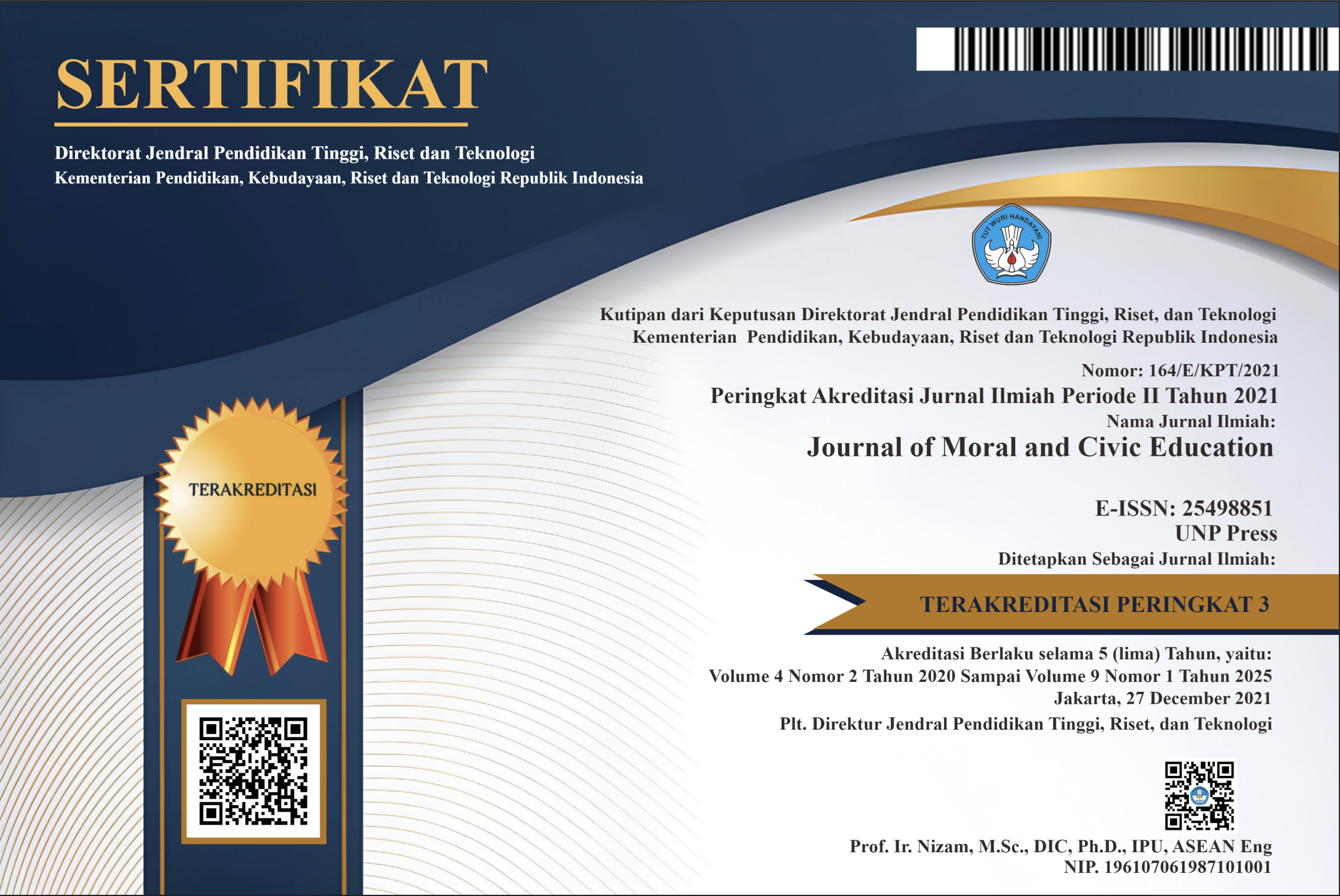Membentuk Generasi Toleran: Studi Empiris Proses dan Faktor Pendorong Internalisasi Nilai Multikultural Mahasiswa Pendidikan Pancasila dan Kewarganegaraan
Abstract
Indonesia is rich in cultural, ethnic, religious, linguistic, and traditional diversity. This situation demands the presence of a young generation who is inclusive, open, and respect to the differences. This article aims to analyze the process of internalizing multicultural values through Pancasila and Citizenship Education (PPKn) learning at Universitas Negeri Padang. The method used in this article is descriptive qualitative. Data were obtained through interviews, observation, and documentation, then analyzed using triangulation techniques to ensure the validity of the findings. This study was conducted on PPKn students at Universitas Negeri Padang. The results show that the internalization of multicultural values occurs through direct experience, personal reflection, and cross-cultural social interactions. Internal factors include motivation, self-awareness, and family background, while external factors include field experience, the role of education, and positive support in developing students' attitudes of tolerance. This attitude is characterized by increased openness, empathy, adaptability, and willingness to establish harmonious relationships amidst diversity. This study confirms that multicultural-based Pancasila and Citizenship Education learning is effective in instilling the value of tolerance. This research is limited to the internalization of values in PPKn students at UNP, so the results may not be directly generalizable to other study programs or universities without further research.




 JMCE is licensed under a
JMCE is licensed under a 